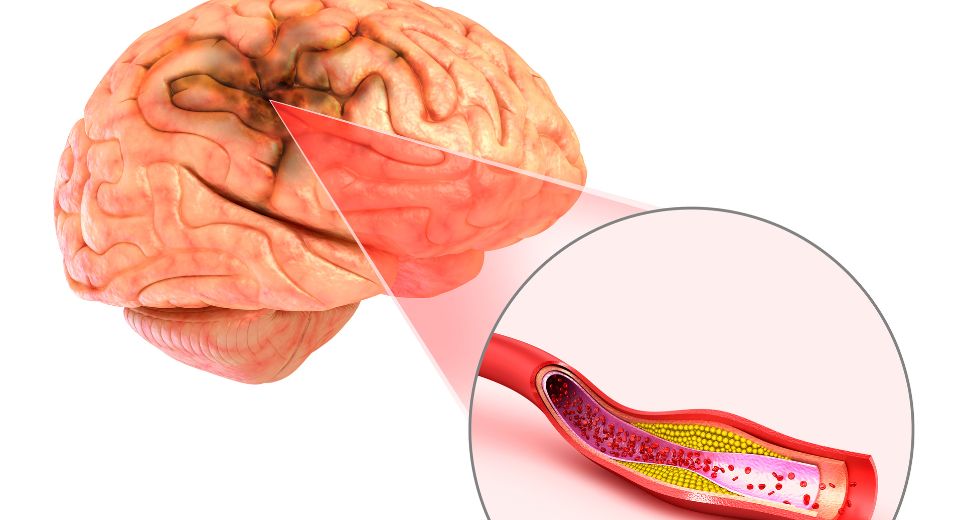Ischemic stroke, a critical cerebrovascular event, is a condition in which the blood supply to a part of the brain is severely reduced or blocked. This results in the brain cells being deprived of oxygen and nutrients, leading to a cascade of neurological issues. Learn more on stroke symptoms, signs, risk factors, types, causes, diagnosis, and prevention.
Stroke Signs and Symptoms
- Sudden Onset: One of the most prominent signs of an ischemic stroke is its abrupt onset. Individuals often experience symptoms without any warning.
- Weakness or Numbness: Patients may exhibit weakness or numbness, usually on one side of the body. This symptom can affect the face, arm, or leg.
- Difficulty Speaking: Stroke victims may have trouble speaking or understanding speech, slurring words, or expressing themselves coherently.
- Visual Disturbances: Blurred or double vision, or even sudden blindness in one or both eyes.
- Severe Headache: A sudden, severe headache, often described as the “worst headache of one’s life,” can be a symptom of a stroke.
- Loss of Balance and Coordination: Stroke can lead to loss of balance, dizziness, and difficulty walking.
- Confusion or Cognitive Impairment: Individuals may become confused, disoriented, or exhibit memory problems.
Stroke Risk Factors
Several factors increase the risk of ischemic stroke:
- Hypertension (High Blood Pressure): Uncontrolled high blood pressure is a leading risk factor for strokes.
- Smoking: Smoking damages blood vessels and increases the risk of clot formation.
- Diabetes: High blood sugar levels can damage blood vessels, raising the risk of stroke.
- Obesity: Being overweight can contribute to other risk factors such as high blood pressure and diabetes, which can increase your chances of having a stroke.
- High Cholesterol: Elevated levels of cholesterol can lead to the buildup of plaque in the arteries.
- Atrial Fibrillation: An irregular heartbeat can result in blood clots that may travel to the brain.
Effects of Ischemic Stroke
The effects of an ischemic stroke can be devastating and life-altering, including:
- Physical Impairments: Paralysis, muscle weakness, and loss of motor skills.
- Cognitive Deficits: Memory problems, difficulty concentrating, and impaired problem-solving.
- Communication Challenges: Difficulty speaking, reading, writing, or understanding language.
- Emotional Consequences: Mood swings, depression, anxiety, and emotional lability.
- Independence and Quality of Life: Reduced ability to perform daily tasks independently.
Types of Ischemic Stroke
There are two primary types of ischemic strokes:
- Thrombotic Stroke: This type occurs when a clot (thrombus) forms in one of the brain’s arteries.
- Embolic Stroke: It happens when a clot forms elsewhere in the body, usually in the heart, and then travels to the brain.
Causes
Ischemic strokes can be caused by various underlying factors:
- Atherosclerosis: Buildup of fatty deposits in the arteries.
- Blood Clots: Formation of clots that obstruct blood flow in the brain.
- Cardiovascular Diseases: Conditions like atrial fibrillation, heart valve disorders, and heart disease.
Diagnosis
Diagnosing an ischemic stroke involves a combination of medical assessments and tests, including a physical exam, brain imaging, and blood tests. Imaging techniques, such as CT scans and MRI, can reveal the location and extent of damage, which helps guide treatment decisions.
Prevention
Preventing ischemic strokes involves managing risk factors:
- Blood Pressure Control: Regular monitoring and treatment of hypertension.
- Lifestyle Changes: Quit smoking, maintain a healthy weight, exercise regularly, and follow a balanced diet.
- Diabetes Management: Strict blood sugar control for diabetics.
- Cholesterol Management: Medications and lifestyle changes to lower cholesterol levels.
- Medications: In some cases, blood-thinning medications and antiplatelet drugs may be prescribed.
- Atrial Fibrillation Management: Anticoagulants to prevent clot formation.
Ischemic stroke is a critical medical emergency that requires immediate attention. Recognizing the signs and symptoms, understanding risk factors, and taking preventive measures are crucial to reducing the incidence and impact of this devastating condition. By staying informed and proactive, individuals can work towards a healthier, stroke-free future.
Author: Mark Wade, MD, Cardiologist


